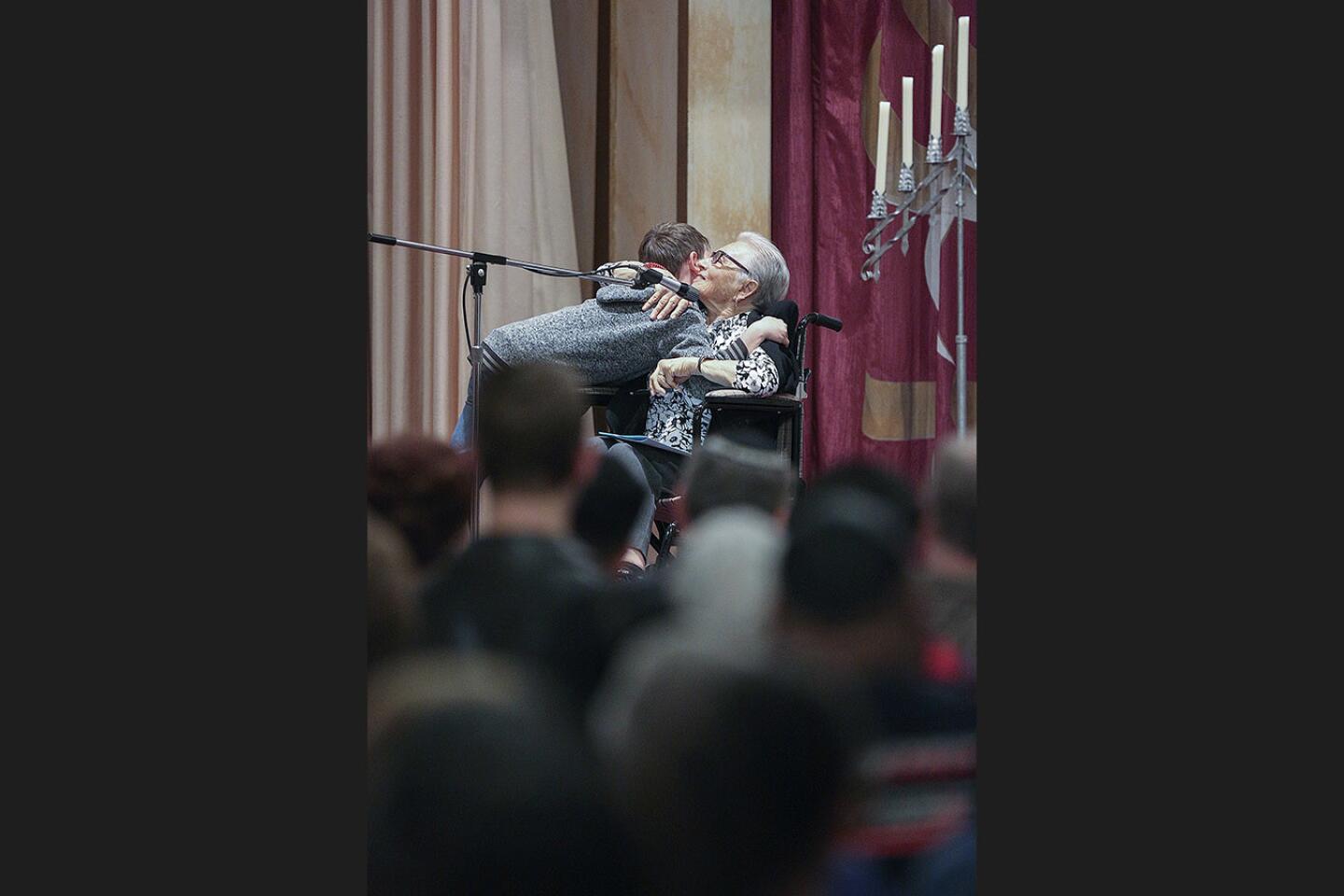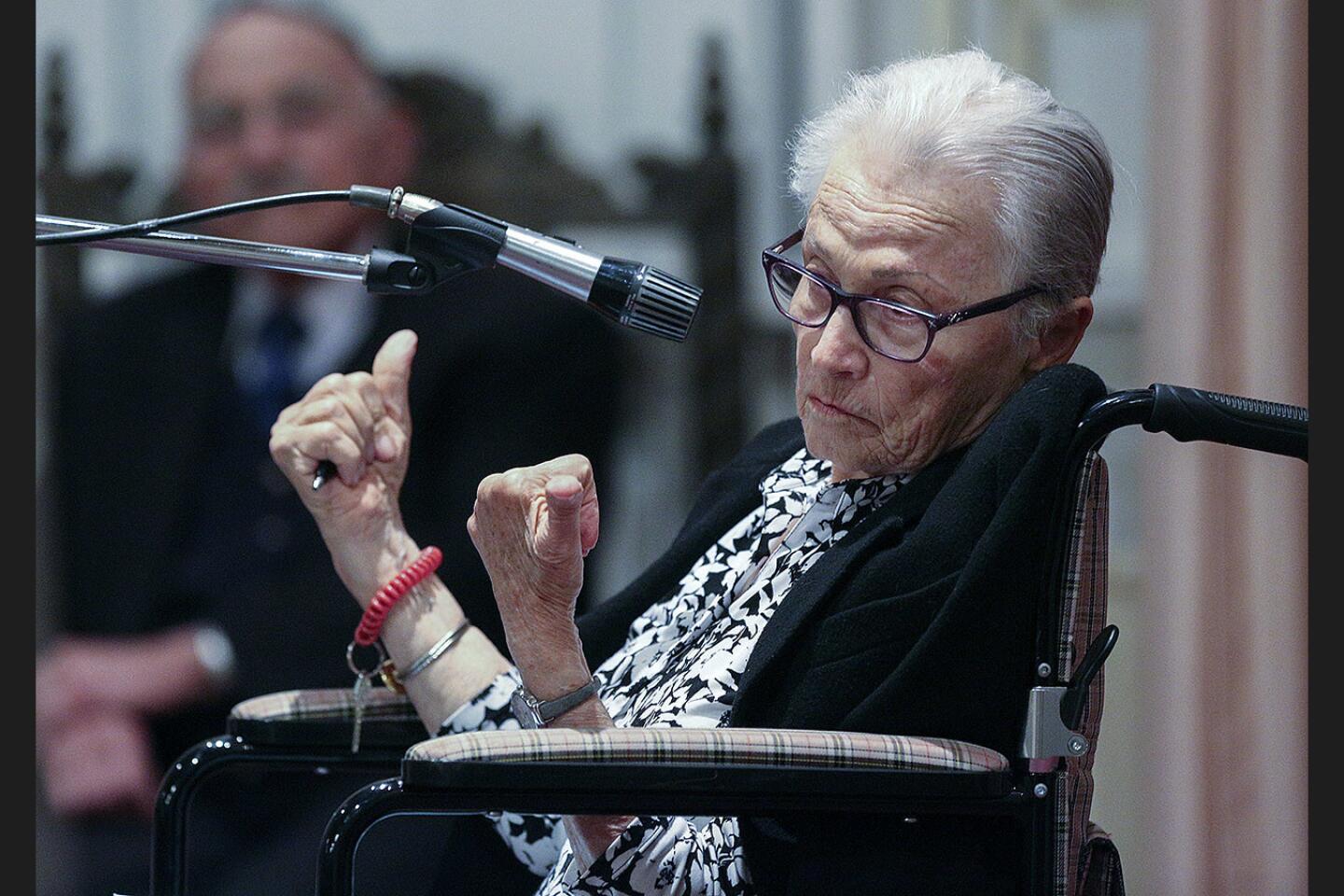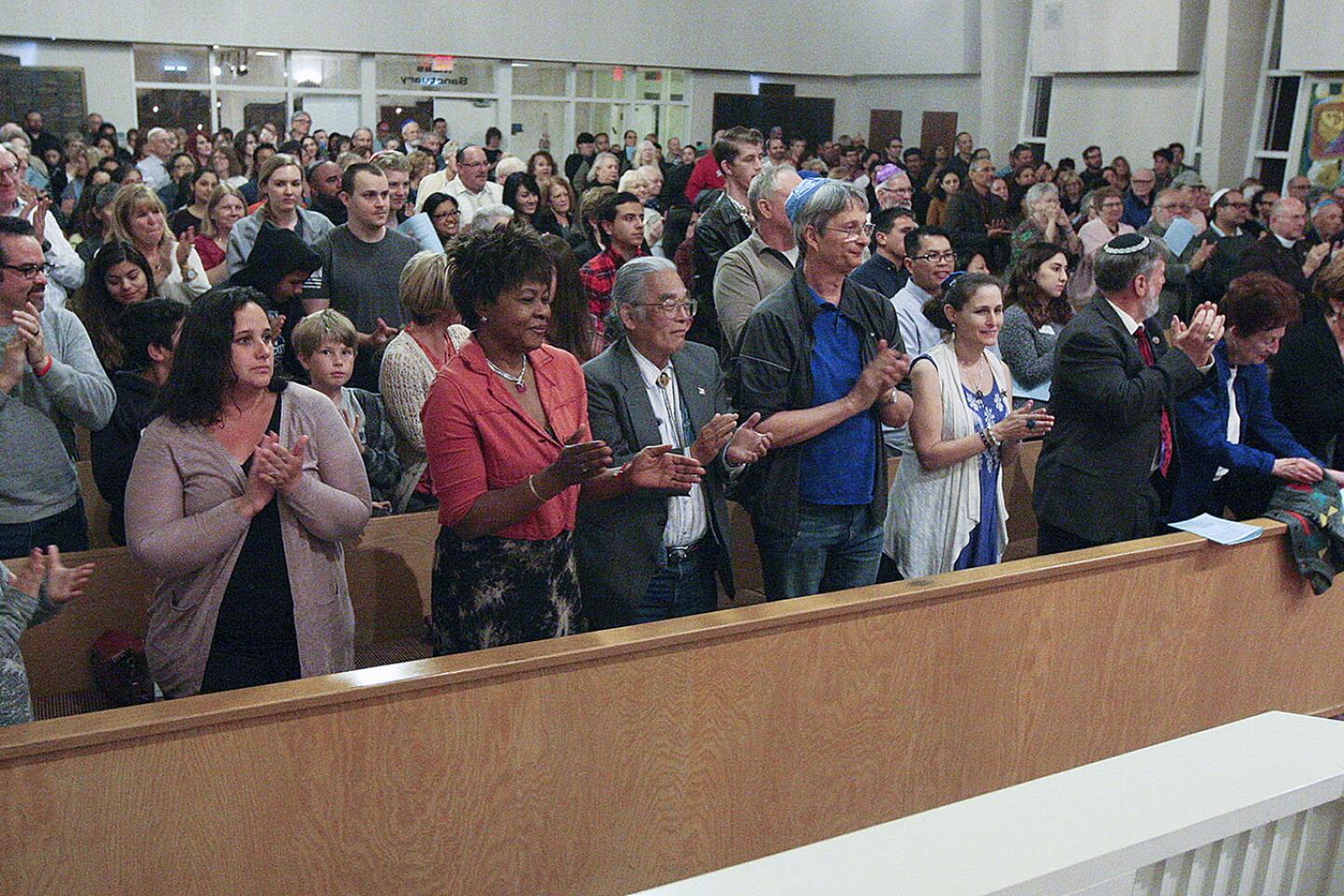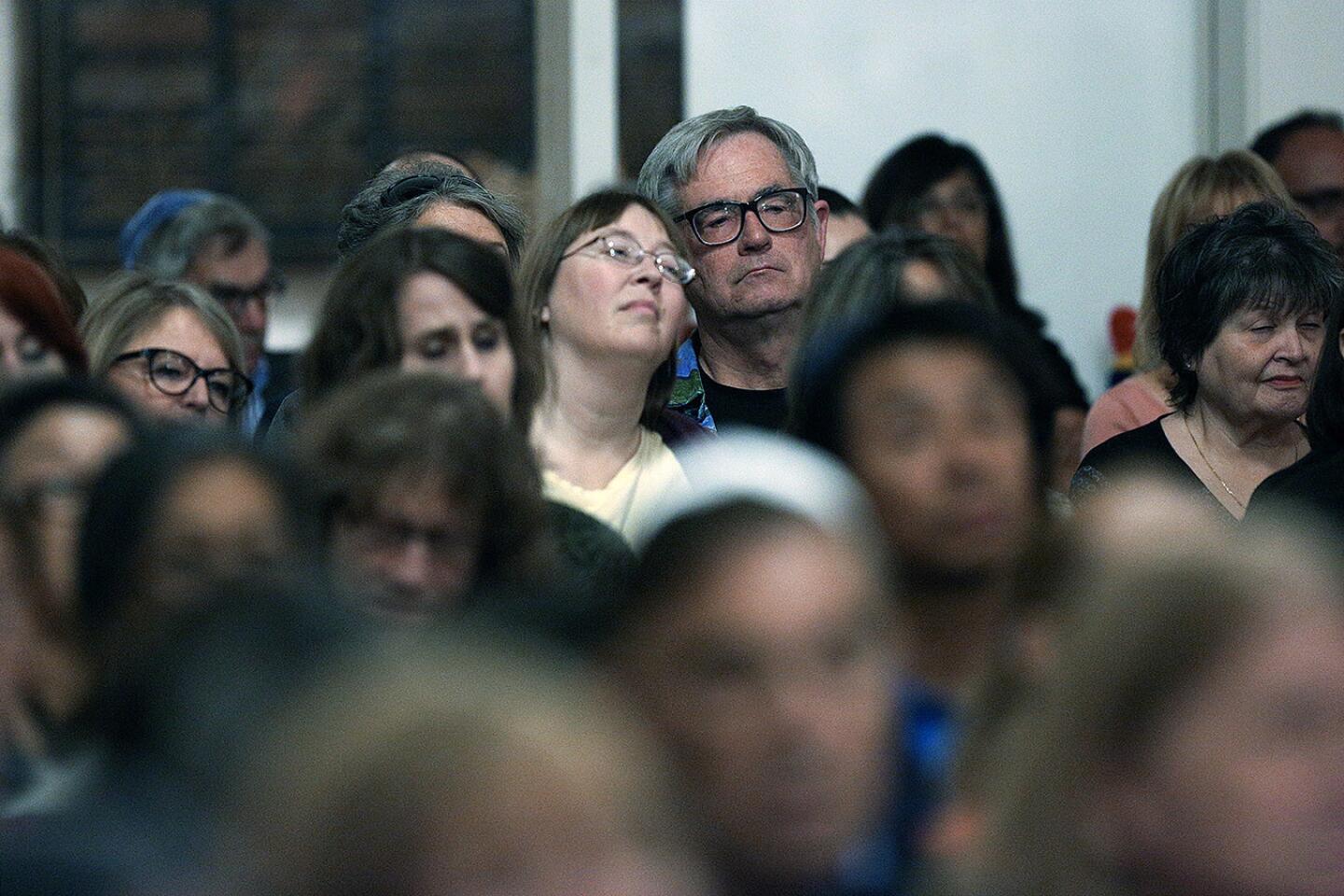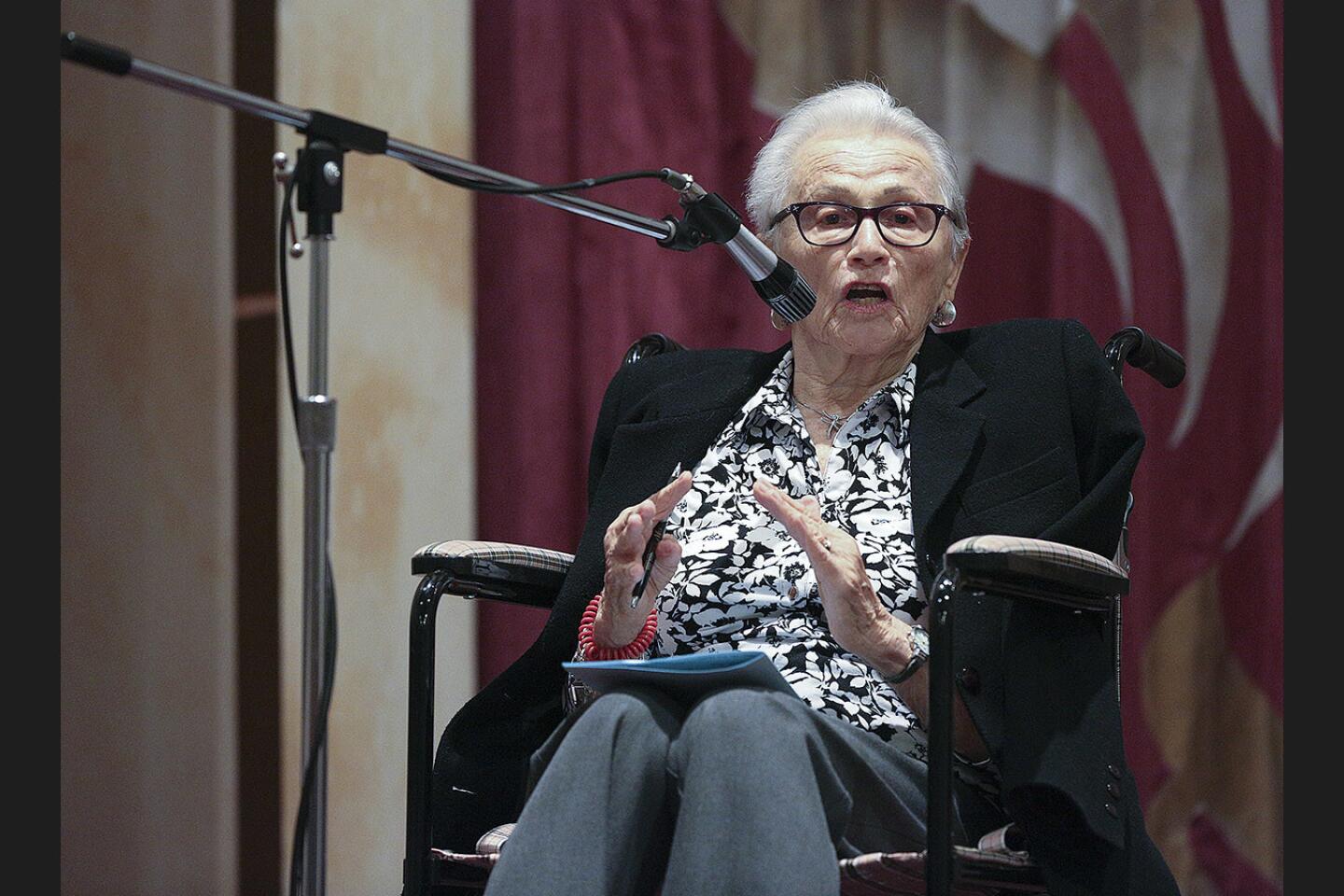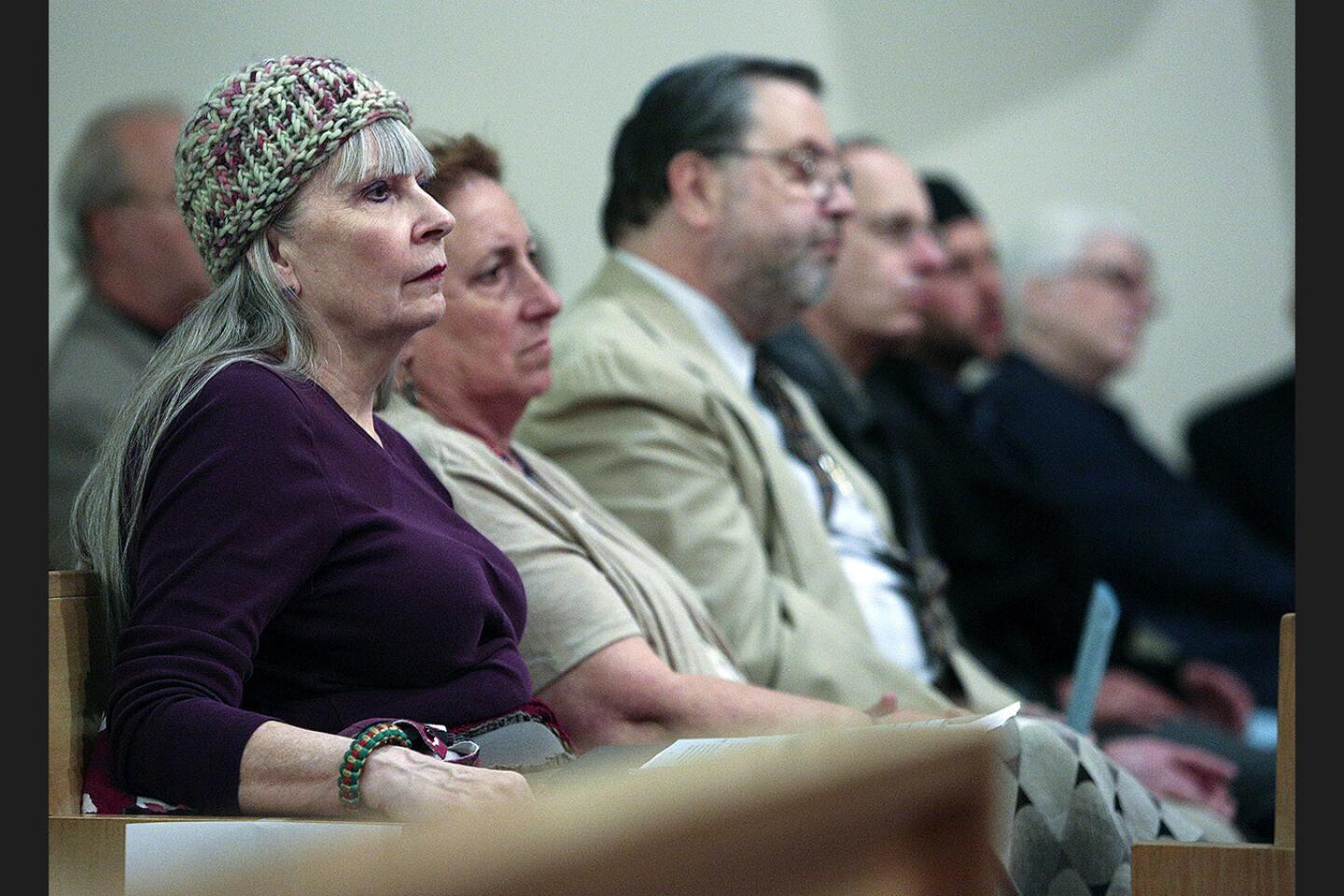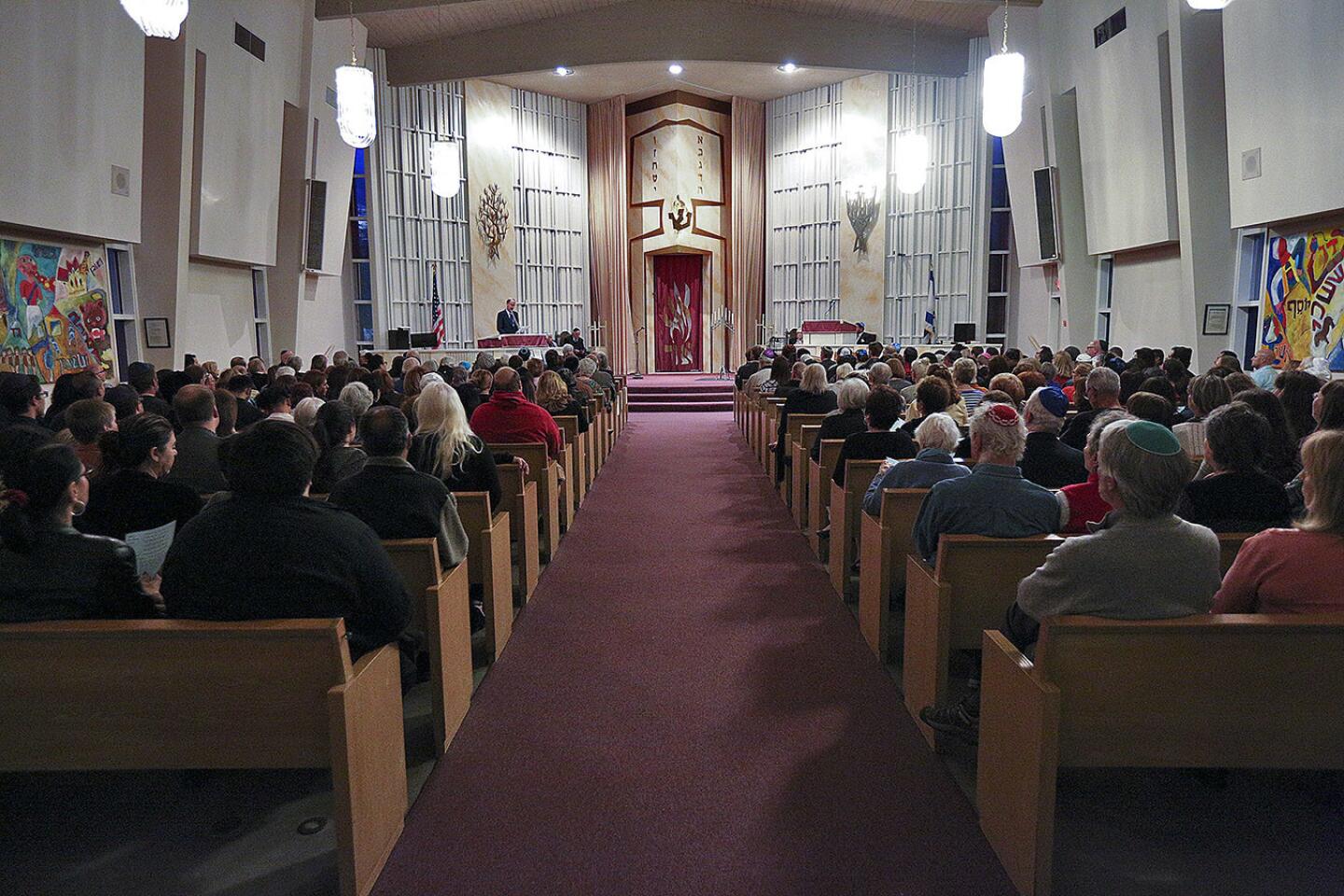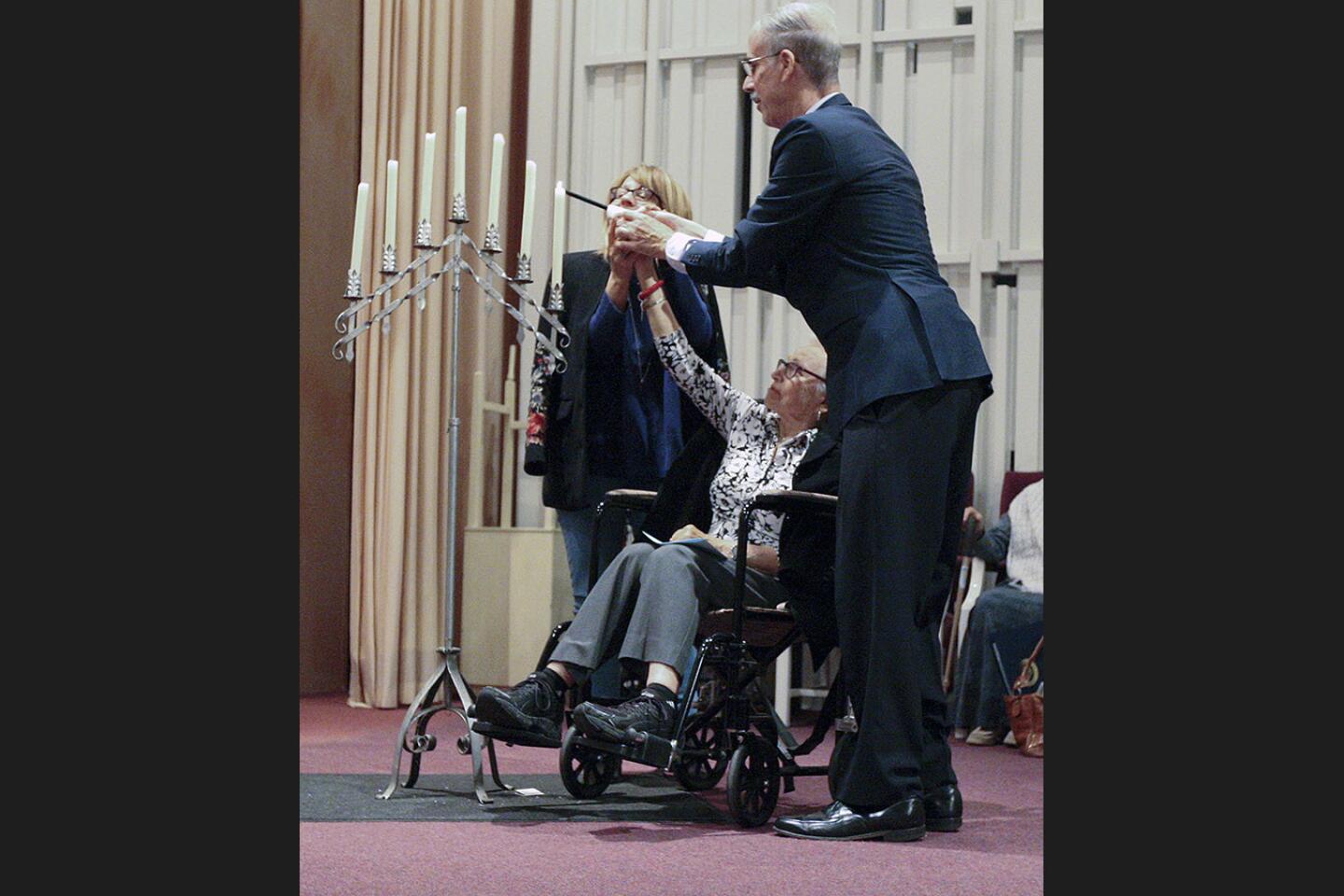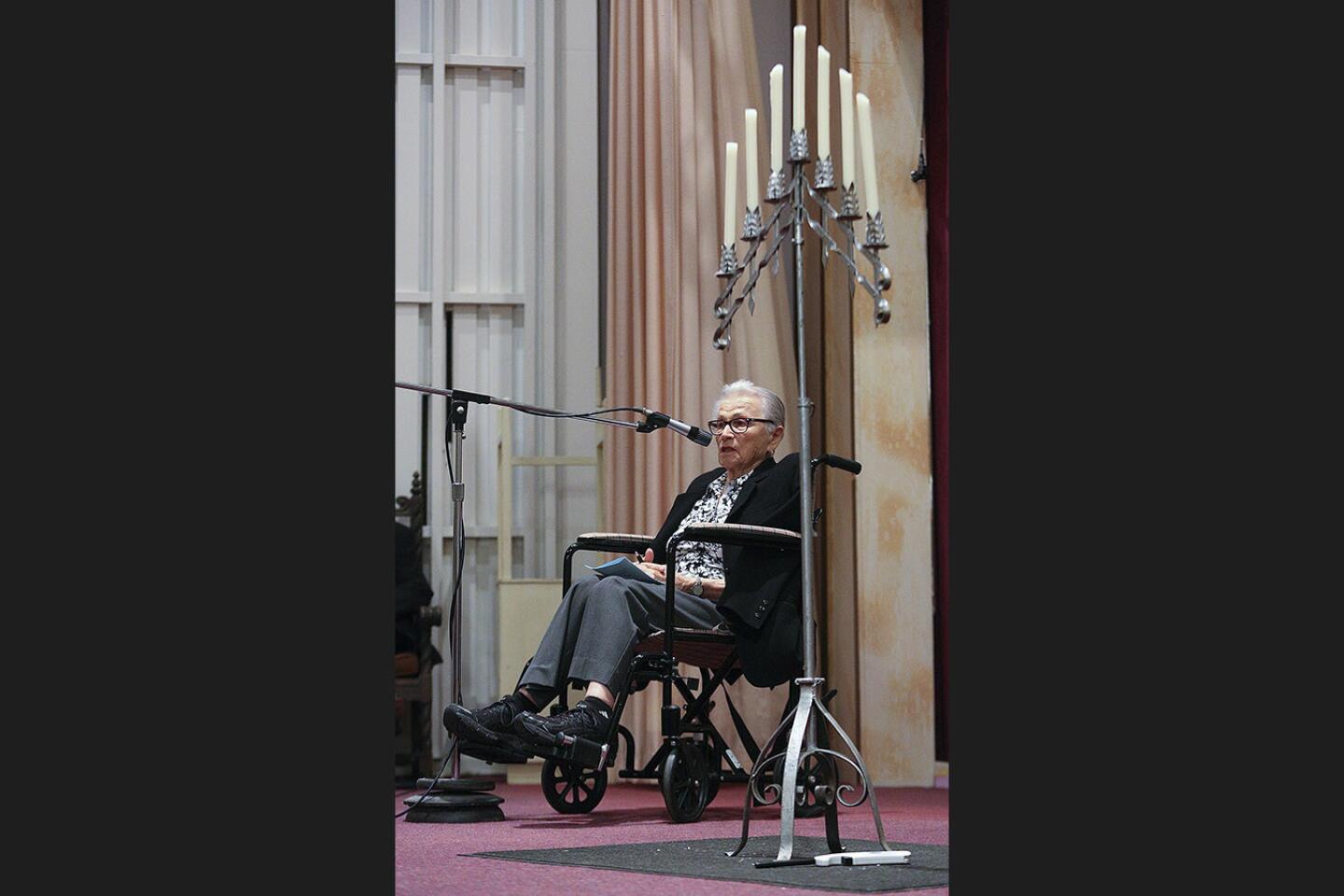Holocaust survivors remembered in interfaith outpouring
- Share via
As a large audience packed Temple Emanu El in Burbank Tuesday night for the 33rd annual Days of Remembrance commemoration of the Holocaust, the need to stand up against a renewed perception of global fear and hatred hung in the air.
“It is a debt owed not only to those in the past, or of those from the past still present, but of those in the future,” said Rabbi John Carrier of Temple Emanu El as he started the service. “A future of which no one will fear murder for where they were born.”
The ceremony and program, sponsored by the Burbank Human Relations Council, brought together an unprecedented 17 Burbank churches and synagogues as well as a mosque.
The crowd of at least 200 people heard from Holocaust survivors and lit candles to honor victims of all genocides.
Six candles were lit for the six million Jews killed by the Nazis, and a seventh candle was lit for five million other people, including the Polish, Russians, political dissidents, LGBT people and the physically and mentally handicapped who were murdered by the Nazis.
The seventh candle also honored the millions of genocide victims, including Armenians, Africans, the indigenous people of North America and South America and the multitude of Africans who died during the years of slavery while fighting for civil rights.
“The Nazi assault against the Jews was unique,” said David Meyerhof, a member of the human relations council. “It was a total extermination of a group of people. No Jews were exempt.”
Meyerhof organized this year’s commemoration, taking over from council member Sylvia Sutton, who is currently homebound, Meyerhof said. Sutton was instrumental in starting the annual event in Burbank.
Meyerhof’s mother, Miriam, father, Walter, and grandfather, Otto, were among theindividuals honored during the candle-lighting ceremony.
Miriam Meyerhof escaped Germany on the Kindertransport rescue effort just prior to the beginning of World War II. Walter and Otto Meyerhof, who was a 1922 Nobel Prize winner in medicine or physiology, were both rescued by American journalist Varian Fry.
While all of David Meyerhof’s immediate family survived, other members of his family were murdered in Auschwitz, Riga and Theresienstadt.
“Over the last few months, the shadows of fascism have entered our communities, offices and schools,” Meyerhof said. “Today, people of all faiths and nationalities must stand together against hate.”
Keynote speaker Erika Jacoby survived Auschwitz with her mother. As a young girl, they were both deported on March 19, 1944, when Germany occupied Hungary. Her memoir “I Held the Sun in My Hands” is a recount of her time spent at Auschwitz.
She was among those who escaped selection by Dr. Josef Mengele, the notorious Nazi officer and physician who was responsible for those selected to be killed in gas chambers. With her mother, and her unrelenting faith, they endured and outlasted the Nazis.
Her film “Swimming in Auschwitz” was also available for purchase at the commemoration.
She said 90% of Jews in Hungary lost their lives in the Holocaust. “It happened so quickly and so thoroughly,” she said. “When I came back [after liberation], I could not stay there or eat there. I felt nothing.”
On the days leading to the liberation of Auschwitz, Jacoby said there were more shootings, and access to newspapers indicated American troops were getting close.
“One day, we woke up and there were no guards,” Jacoby said. “They escaped. We had no celebration. We just tried to get out. I dug a hole underneath the electric fence and I walked.”
Other local survivors recognized during the commemoration were Hilda Fogelson, from Berlin; Herbert Murez, from Vienna; Dorothy Greenstein, from Otwock, Poland; and Judy Mason-Benedict in honor of her mother, Doris Mason, born Doris Franzelore Goldschmidt in Schluchter, Germany.
After the commemoration, Daniel Amin Colman, congregant from the Burbank Islamic Center who read one of the 18 prayers from Temple Emanu El’s religious co-sponsors, said he felt welcomed into Burbank’s interfaith community.
He said about 500 people attend his mosque, and he’s noticing that now there is second generation at the Burbank Islamic Center — and in the greater region — branching out into the interfaith communities, whereas the first generation focused more on first building its own foundation.
“I’m very grateful to be a part of the event,” he said. “It feels important to show the solidarity.”
Matt Sanderson is a free-lance writer for Times Community News
